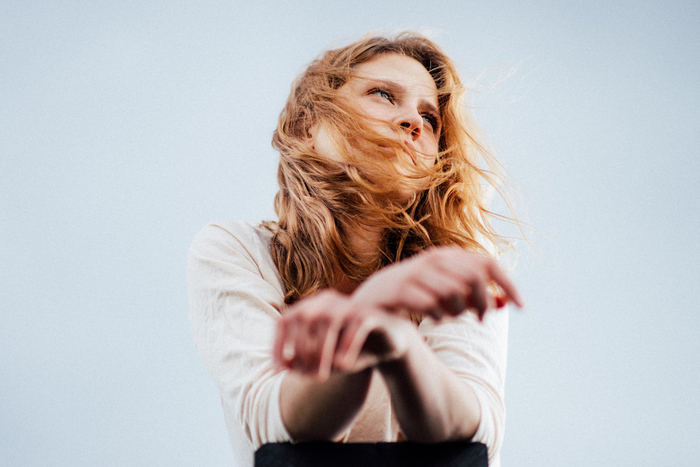Purveyors of: Rhythmic exchanges and tonal changes.
File next to: Angel Olsen, Daughter, Alela Diane.
Playing: WL17 Night 2, Saturday Feb. 18th @ The Garrison. Get tickets here!
Initially a solo act, Helena Deland is now a four-piece outfit from Montréal. Together with Mathieu Bérubé, Francis Ledoux, and Alexandre Larin, Helena Deland creates a dynamic between rhythm and vocals that is striking on so many levels. Wavelength’s Devin Calow caught up with Helena as they prepare for their weekend set in Toronto.
Originally, when you began performing, you were a solo act. Why did you decide to become a four-piece act? How would you say has this affected your creative process?
Playing with other people expands the possibilities for every song, it feels more complete faster, and it leaves more space for surprises. I learn a lot from the guys and girls I play with.
You’re from Québec City and are now based out of Montréal. As an artist who sings in English, was there ever any challenges garnering attention in the Francophone community?
It’s harder to get airtime on Québécois radio stations with English content because of quotas, but the Francophone milieu is very open to English music. I think the fact that most of the people I work with in the music scene are Francophones actually determines who listens to my music in Québec.
When I listen to your music I can hear a lot influences in tone and style. What artist(s) has had the biggest impact on your music?
It depends on what I’m listening to at the moment. I borrow a lot (consciously or unconsciously) from what I like. I was listening to a lot of Jessica Pratt, Angel Olsen and Timber Timbre when I wrote Drawing Room.
I understand that literature has also heavily influenced your music. Who would you say is your favourite author?
That’s a tough question: I recently read [Witold] Gombrowicz for the first time and can’t get over it. Songwriting wise though, Carson McCullers’ poetry and Lydia Davis’ short stories have seemed to have the most direct impact on me.
I hear that you keep a journal with you to write down your experiences. How would you say this has helped you as a writer of music?
It’s a way to keep track of thoughts, and translating impressions into words in writing is like playing an instrument, in a way — it gets more interesting with practice.
By and large, 2017 has started with a “thud” not a “bang!” What’s something positive you’re looking forward to this year to counteract all this negative energy?
The past few months have felt insanely tense, generally speaking. It’s hard to predict what’s going to happen.
Wavelength provides emerging artists from across Canada with a platform to showcase their talents at our series and festivals. Who are you excited to see this year?
I’m looking forward to seeing Julie Doiron again, and I’ve never seen TOPS, whose music I really like.
What can your fans expect to see when you take to the Garrison stage on February 18th?
It’s hard to predict what’s going to happen.
— Interview by Devin Calow

